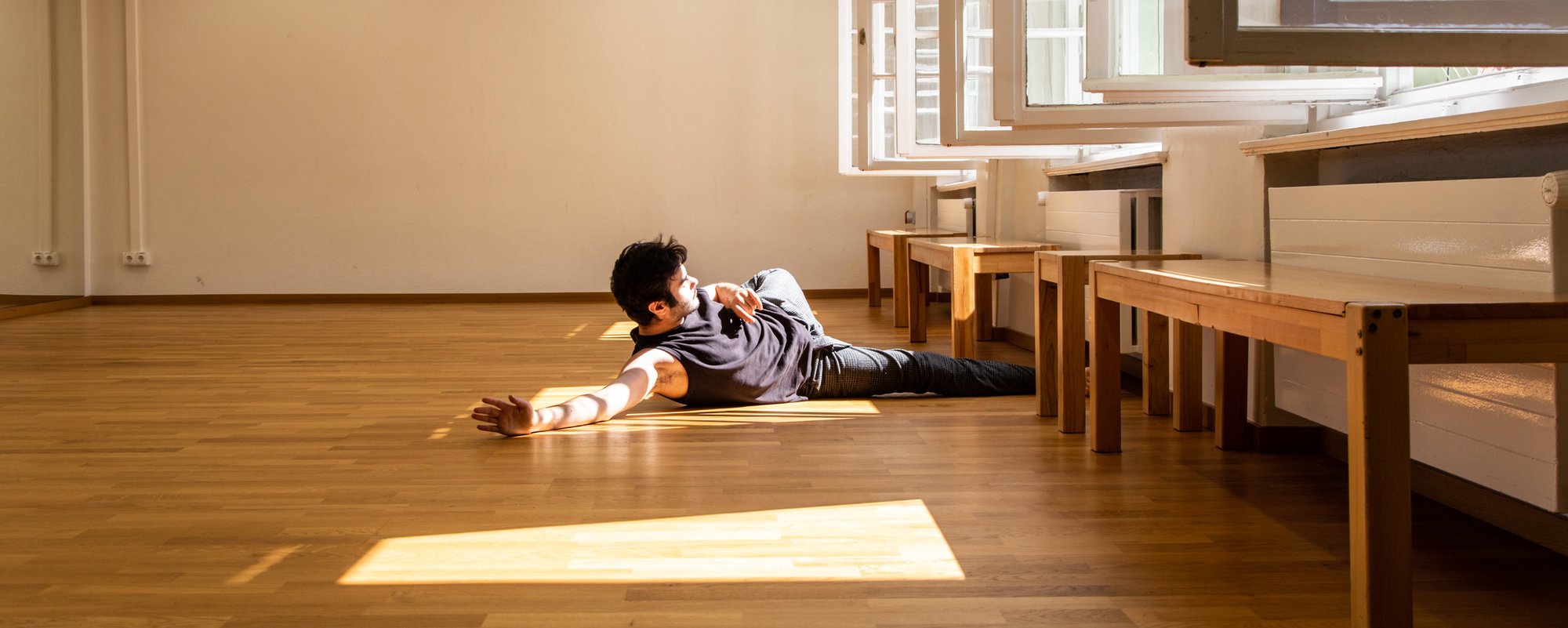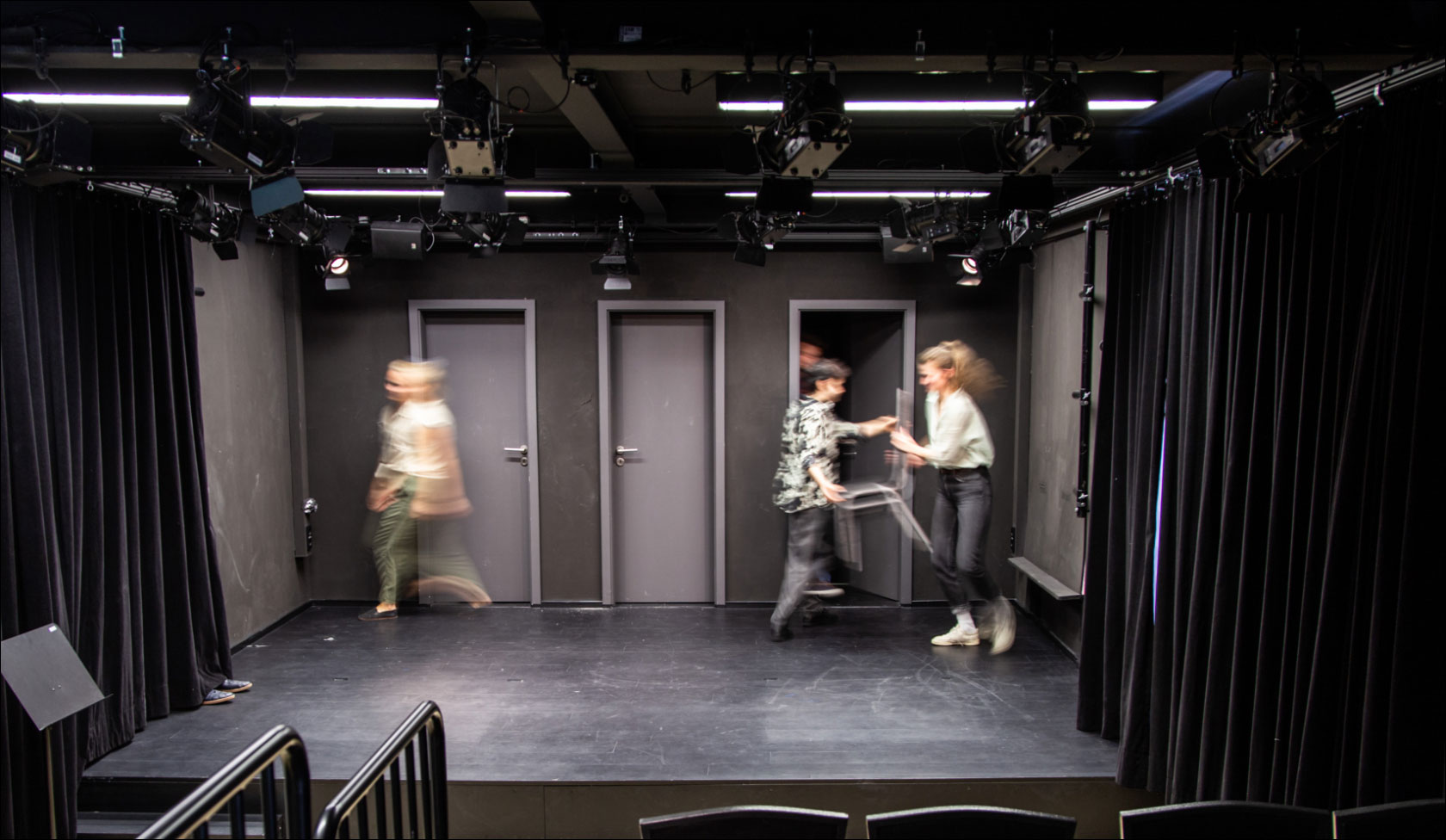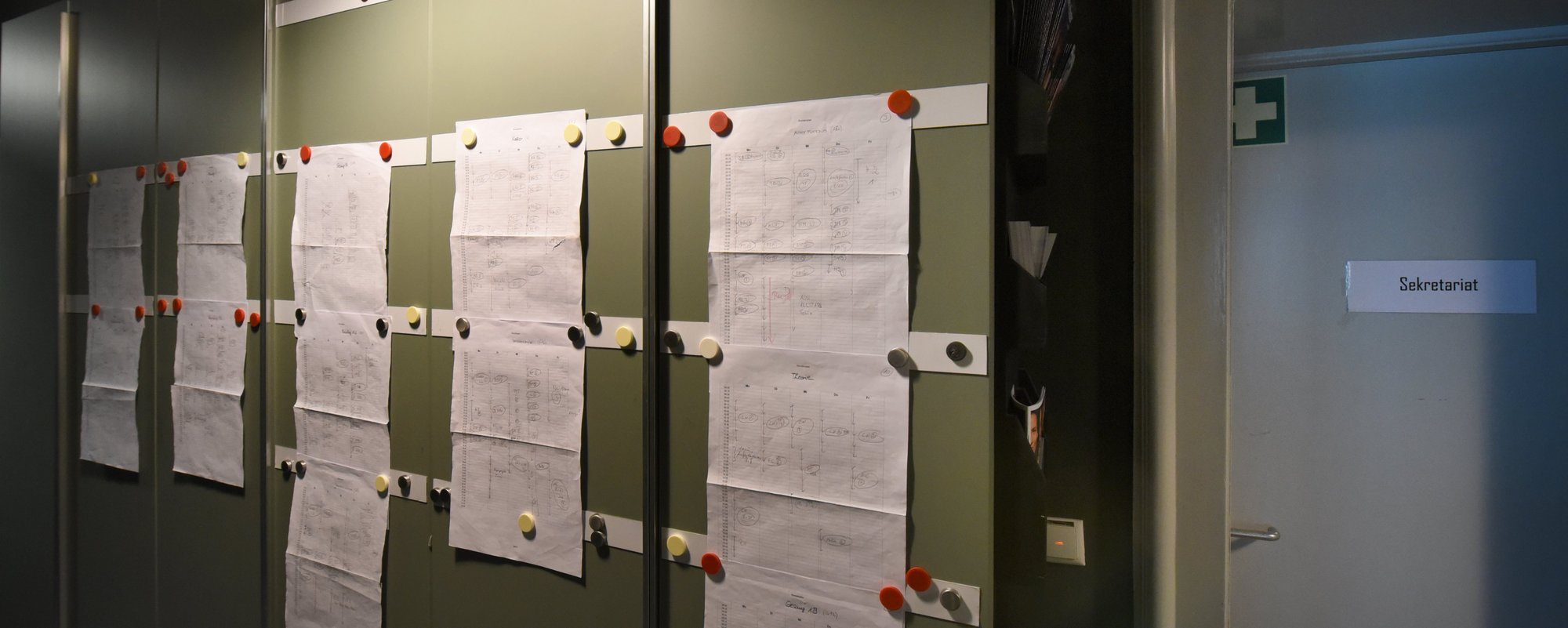
The Bavarian Academy of Dramatic Arts (BADA) aims to form actors and actresses who define the highlights of their own creative work, who have internalized the nature of working in the theater and its demands, and can contribute their personal talents of artistic expression.
The students are expected to learn how to adapt to the work methods specific to their profession, and to develop and maintain their enthusiasm for performing. The disciplines of Language and Voice, Body and Movement as well as Theatrical Performance convey the tools of the trade which are combined to yield the result. Students begin performing in public in the first year of the course, starting in the second year they gain more experience by working with the students of Stage Direction.
The students will engage with the technical theoretical precepts of their profession throughout the training course. Inspiration is born of the interplay between theory and practice. At the same time, classes remain focused on practice and the profession. Electives and specializations afford room to explore individual talents and interests, and complete the training of a fully developed actor.

The disciplines of the Acting course in detail
1. Language and Voice:
Because it is designed specifically for the acting profession, speech training for actors at the Bavarian Academy of Dramatic Arts is based on the following four breathing, voice and articulation methods: Gestural speaking according to Klawitt & Minnich, or Ritter, the Linklater method, the Vasiljev method and AAP training according to Coblenzer (breath-timed phonation).
2. Body and Movement:
The study of movement for Acting at the Bavarian Academy of Dramatic Arts is designed to prepare students for the modern theater, that is to say to train the body as a vehicle for representation and performance. It is based on elements from Humphrey/Limon, Cunningham, Post Modern, Release and other body-experience techniques. Particular emphasis is placed on precise and above all deliberate, expressive movements. The medium of improvisation helps to become aware of one's own body with its capabilities and its expressive power, and to develop it further. Activities are focused on the relationship between space, power, time, and always on inner attitude as well. Influences are the works of Jacques Lecoq, Pina Bausch and the theater of Christoph Marthaler and Falk Richter.
3. Dramatic Performance:
In its practical orientation in the discipline of Dramatic Performance for actors, the Bavarian Academy of Dramatic Arts draws on the European tradition, with particular reference to the ideas of Bertolt Brecht and Konstantin Stanislavski. Practical application remains at the heart of the instruction. Besides internships with theaters, public performances are scheduled from the start. Individual creativity is stimulated and individual gifts are nurtured. Technical ability and artistic challenge are emphasized in equal measure.
4. Technical Theory:
The program of practical disciplines offered at the Bavarian Academy of Dramatic Arts is complemented by the discipline of Technical Theory with a view to providing a comprehensive education. The students receive a fundamental knowledge of theatrical theories, current technical literature, dramatic and textual analysis, theatrical and literary history, esthetics, costume and make-up studies, the anatomy and physiology of speech, orthoepy, theater law, self-management and cultural management. With regard to methodology, the course draws mainly on the theories underlying the writings of Bertolt Brecht and Konstantin Stanislavski, but other forms are also covered, such as those from North America (Lee Strasberg, Stella Adler, Uta Hagen, Sanford Meisner, Keith Johnston), Latin America (Paulo Freire, Augusto Boal), Asia (Noh Theater, Kabuki, Peking Opera, Kathakali) and Europe (Commedia dell'Arte, Wsewolod Meyerhold, Jerzy Grotowski, Peter Brook).
Specializations
Students of the Academy may elect to pursue additional specializations in the following fields:
- Singing
- Dialect acting
- Children's theater
- Dramatic writing/Film script writing
- Lighting and sound engineering
The specializations entail additional commitment, above and beyond the actual training course.
Acceptance for these specialization courses is contingent on passing an aptitude test (does not apply for all specializations).
The specialization courses will only be held if there are sufficient numbers of participants.


